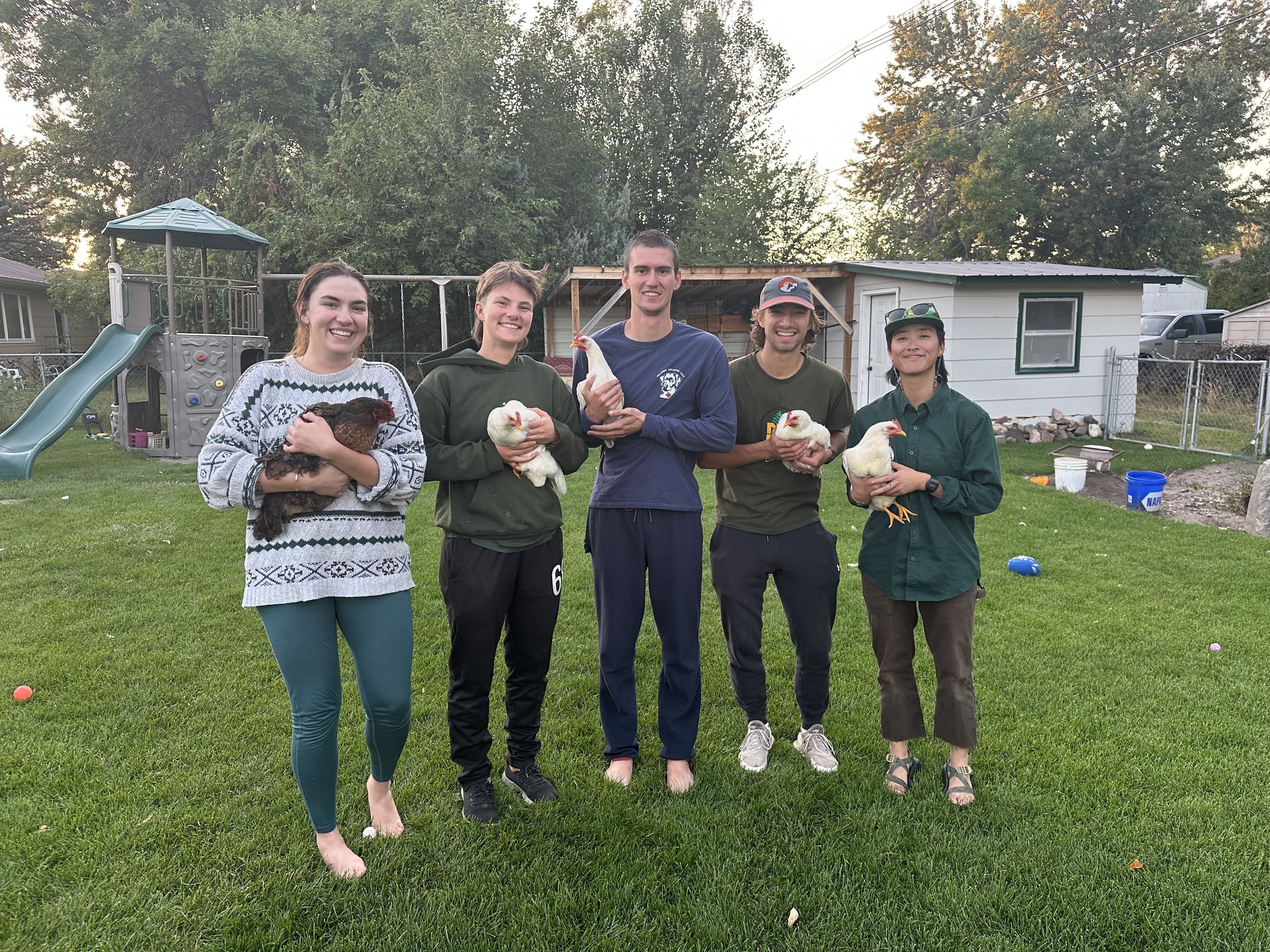
This penultimate hitch of the season is one of the hardest. We are almost done, but not quite celebrating the last hitch, and deeply worn out from being eight months into this very physically and mentally demanding job. As my crew likes to say, we are “smelling the barn,” feeling so close to the end that it can be easy to become complacent and race towards that finish line without stopping to enjoy the journey. Although when I joined Montana Conservation Corps I never expected to spend my time working in Nebraska, I figured I knew exactly what I was getting into. As everyone knows, Nebraska means camping in a cornfield and dodging tornadoes and dust storms in a pancake-flat wasteland.
You would think I had learned to expect the unexpected by now.
We arrived in the dark after a 10-hour drive that managed to take over 14 hours with pee breaks, snack stops, and a time change. We rolled out of the rig, pulled out sleeping bags and sleeping pads, and fell asleep in the shadow of our truck at what we were only hoping was the correct campground. The next morning, we woke up to a pea-soup-thick fog rolling in, hardly better than the pitch-black darkness of the night before. We scrambled to put up our stove and get some bagels in us to fuel our first work day. The sun rose quickly, the darkness lifting all of a sudden to reveal the scenic river valley we had landed in. The vibrant mixture of hardwoods with leaves just starting to turn and the ponderosa pines that make up the largest conifer forest in Nebraska contrasted starkly with the monochromatic sea of pines that makes up the forests in Montana. But similar to Montana, this region is at risk of wildfires. Our work here was to create a large fire break to stop a fire in its tracks if one comes through like the fire in 2012 that burned 72,000 acres of this forest.
On day two of our hitch our project partner said we “have to” float the river. He insisted, in fact, that we take a day off from our saw project to canoe down the Niobrara River, which winds through this forest. We spent the day paddling over the calm water of the Niobrara under the warm sun, taking in the scenery around us. The voyage culminated in viewing Nebraska’s tallest waterfall, 63-foot-high Smith Falls. This day felt like a rare and valuable gift, to have the opportunity to just exist in this ecosystem we are working in, and zoom out to experience what it is we are working so hard to protect.
Back in the day, there was a proposal to build a huge hydroelectric dam that would flood the land surrounding this river. The landowners came together and had the Niobrara designated a Wild and Scenic river, serving the dual purpose of preserving the river in its natural state and keeping their land from being flooded. The land we camped on is home to Sharp’s Outfitters, a depot for folks seeking to recreate on the Niobrara. Rita, who owns the land and staffs the Sharp’s Outfitters general store, greeted us with such warmth and generosity. She gave us access to showers, a rare luxury while on a hitch, and insisted that we come to her for anything we might need. It felt odd and refreshing to come home on the last day pretty much clean and not covered in the usual thick layer of grime and dust that a baby wipe bath can’t quite dispel. Rita’s cousin, Jack, took it upon himself to deliver us picnic tables and a fire ring to our campsite. Our project partner, Travis, in addition to taking us out on the river, invited us into his home for dinner, where we enjoyed burgers, played football with his kids, pet his chickens, and admired his large collection of antique kerosene lamps.
The hospitality and gratitude of the people we encountered in this hidden corner of Nebraska was a needed reminder of the large impact our crew can have on small pockets of wilderness like this. When we debrief at the end of a hitch, we go through rose-bud-thorn, or something good, something bad, and something we are looking forward to. This time around, we added “elephant”, or something that surprised you, to the rotation. Honestly, I think I had more elephants than anything else. At a time when fatigue is setting in and the "barn" is smelling better than ever, this past hitch offered plenty of elephants - rather than cornfields, a tranquil river valley, coyotes yapping at night, flocks of turkeys ambling sleepily around the campground every morning. Rather than empty towns, a community of people who care about this land and appreciate the work we are doing to preserve it. Instead of the prospect of the end of the season, these discoveries will carry me through my last hitch, the “why” that brings us here in the first place, a reminder to keep an open mind and soak up these moments. Who would’ve thought? All that from Nebraska?

![[Image Description: Two MCC members taking a brief break; one is sitting on a rock, the other is standing nearby. They are both in their uniforms, looking out at the expansive, mountain view surrounding them.]](https://cdn.firespring.com/images/c3f85e97-43a9-4810-8081-e8e6338173d0.jpeg)



